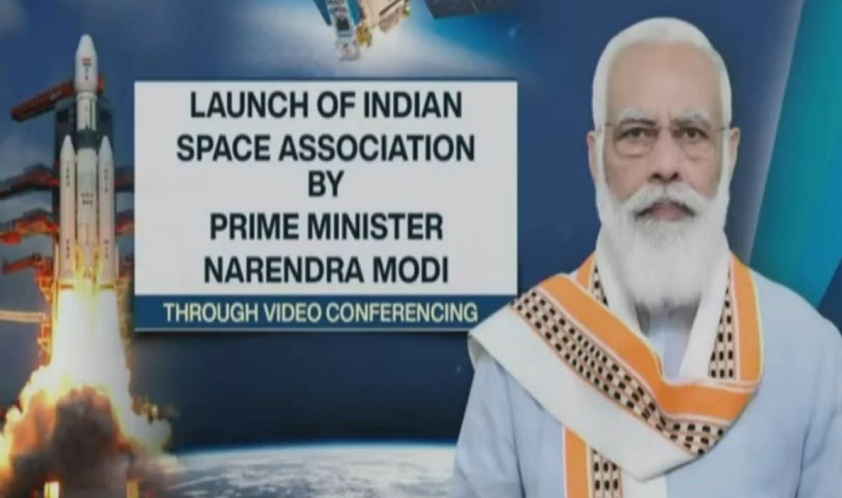forward leap
| Date :13-Oct-2021 |

THE formation of the Indian Space Association (ISpA)should be treated as a forward leap in the nation’s industrial march of recent times. It indicates that India’s space industry has grown so much that it needs a professional body to spearhead its diverse interests. It was only natural, therefore, that Prime Minister Mr. Narendra Modi talked of the country’s core need of the day as he inaugurated the ISpA -- exponential innovation in place of linear innovation. In other words, he meant that India needs an explosion of innovations in diverse fields that would ultimately catapult it into the zone of futuristic achievement. In still other words, Mr. Modi suggested that space-related science and technology have the capacity to push multi-faceted growth of the nation as both these would require a never0before push of creative ideas that can surmount challenge. Of course, India has benefitted immensely from its engagement with space science and technology in the past fifty-plus years, though the common people may never realise what they have gained in actual terms. As the nation’s space programme grew leaps and bounds, indigenous industry, too, grew, though not correspondingly, in the sense India depended more on imports of know-how and products to carry the space programme forward. Thanks to various hostile elements that operated in the international realpolitik from which the country suffered heavily, India had to turn inward and start relying on indigenous contribution from research & development (R&D) and industrial domains.
Over time, this has led to a noteworthy growth of indigenous industry in space-related science and technology. But as he inaugurated the ISpA, the Prime Minister was more than specific when he announced his desire to push the country’s innovative process far more exponentially than most can imagine. He has insisted upon nursing of a culture of creativity and innovation to spur scientific and industrial growth. In order to support that vision, the Government has already put into full motion the Atmanirbhar Bharat concept in addition to the idea of Make In India. Through those, the Government has been able to push better growth in diverse fields -- which include space as an integral and important part of the national agenda. The Prime Minister has tried to discourage what he called linear innovation -- which, in simpler terms, means that innovation takes place one after other. A slow pace of progress, thus, is indicated by that approach -- which the Prime Minister does not enjoy. He is in search of a multilinear, exponential explosion of creativity and growth so that the country achieves a faster pace of growth and development -- in the form of 720-degree-activity, to use a modern expression. Space is going to be one of the national triggers of growth, of course, as is indicated by the formation of the ISpA. Just a few decades ago, Indian achievement in actual space technology was only minimal, and naturally its extension, too, was limited.
Yet, in the past some years, India has achieved a phenomenal success in its space programme -- so much so that countless other nations are eager to use Indian facilities not just to catapult their satellites or spacecraft into outer space but also to promote genuine growth and development in their respective lands. This achievement was possible because the larger Indian industry kept its date with space and its demands and challenges, in the process becoming a world power in its own right. It is because of this reason that the country needed a national Space Association. But all this growth is able to help the nation cover only a small distance of its creative and innovative journey. Having been aware of this limitation, Mr. Narendra Modi has talked insistently of an exponential growth. From that point of view, we realise that the formation of the ISpA needs to be treated as a major leap forward. It is sure to act as a spur in pushing science education as well at all levels. India now stands at an important point in its scientific and technological journey, a fact the country can only ill-afford to ignore. May this point act as a starting point of the next stage of the journey on the road ahead.